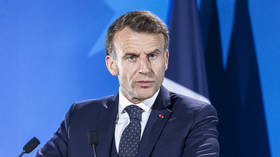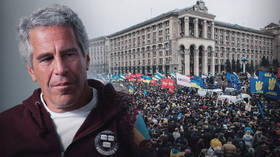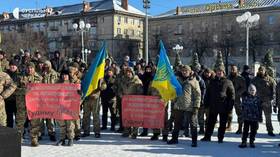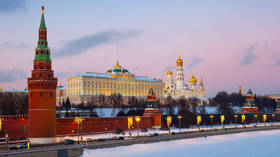‘Russia is ideal partner’ – Greek government spokesman

Close Russian-Greek ties could be instrumental in Greece’s recovery from depression government spokesman Simos Kedikoglou told RT.
This year Greece is expected to end with a surplus, which is a
sign that the country is moving in the right direction, Kedikoglou
says.
RT:2012 was a momentous year for Greece. The country managed to keep the euro, and bankruptcy fears have receded. Is Greece over the worst of it?
Simos Kedikoglou: Yes, Greece is over the worst of it, but the crisis is not over yet. We still have a lot to do. When the government came to power last June the climate was very negative. I would say we were practically out of the eurozone, but we managed to win the first battle – the battle for the eurozone. Now we have another battle, the battle against unemployment, which has risen to the levels nobody could imagine – 27 percent among the population and 60 percent among young people. At the beginning it was only austerity and nothing else. That didn’t work, that’s why we have the fourth consecutive year of recession, that’s why unemployment rose to these levels. The new program includes policies for development. We are using numerous tools to create jobs. The Greek economy desperately needs new ‘clean’ money, not loans. This can be achieved in two ways – by increasing exports and attracting investments. In both these ways Russia is an ideal partner. That’s the reason why here in Russia we’ve presented for the first time the new Greek investment law.
RT:What is the new investment project about?
SK: There are two significant things. On the highest level, I mean big investments, we have the so-called fast-track procedure. If anyone wants to invest 50 million euros or more in Greece we will guide the investor untill the fulfilment of his plans. We have certain procedures, which would help achieve that. For example all the necessary permissions will be given by one service. Investors won’t have to go through this marathon and labyrinth of bureaucratic procedures. On the lower levels there will be also something attractive especially for Russians. For instance, if a Russian buys a house in Greece above a certain level, which I believe will be around 200,000 euros, he and his family will be given a five-year visa, which will be renewed if he keeps the house.
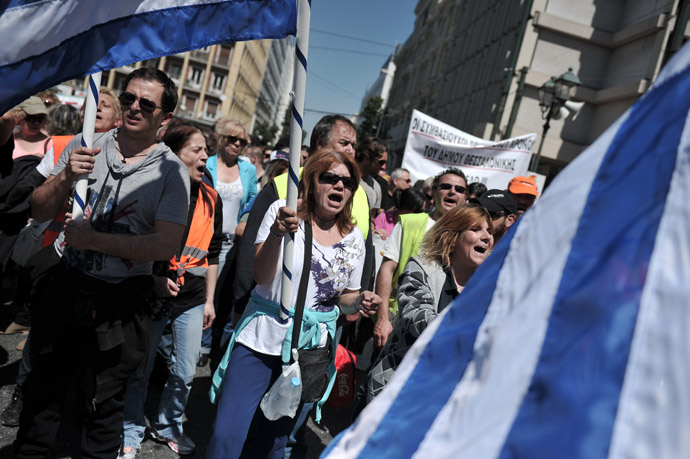
RT:Not everybody is happy about Greece building closer relations with Russia. Greece is expected to raise 15 billion euros in privatization and among other things looks into the possibility of selling natural gas assets to Russia. There are media reports that the US and the EU are advising the country not to do it. What do you make of that?
SK: We are going to carry out the procedure according to the plan. The best offers will win and we are welcoming the two Russian companies that have made their bids, which, as far as I know, are very attractive. There are two main things that are important – the sum and the gas plan. You can understand that especially for an economy, which wants to get out of the crisis, it’s important to have the cheapest possible energy.
RT:Did your country get any advice from the US and the EU?
SK: The only advice came from articles in newspapers. I’m also a journalist and I know how some articles appear. In our case only the best offer will win.
RT:Now it sounds like ‘No more austerity’ for Greece. Is that correct?
SK: The Greeks have sacrificed much. The average income has fallen by 30 percent. We’ve had enough of austerity. We need development, which is as needed as air now. We were in a downward spiral and managed to stop it. By the summer we will have started to rise again. And this year, for the first time in 30 years, Greece will have a primary surplus. I think we are doing things right. It’s hard. We must help as soon as possible those categories of people, who need help.
RT:Back in the 1990s, when the idea of the eurozone was being discussed, experts were saying that such countries as Italy and Greece aren’t ready to join it. Why do you think they were dragged in?
SK: Well, it was the European dream. But I can’t understand why we insisted on creating the monetary union without advancing the political and economic union. How was that possible? Why did we do such a mistake? Not only Brussels is responsible but the whole EU. Right now the EU is facing a major challenge. It must change, it must learn the previous lessons and not repeat the mistakes of the past. We stay optimistic and believe that Europe will change in the correct direction.
RT:Mistakes were made, you are absolutely right, but…
SK: …will we stop making them? You have to ask quite a few politicians about that.
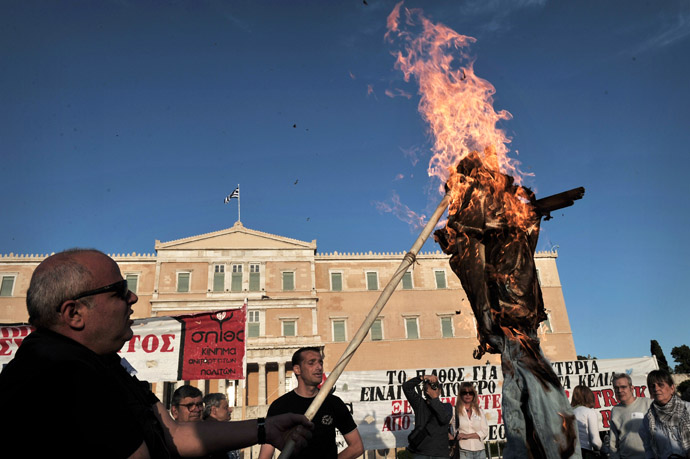
RT:Will anybody be held responsible for those mistakes? The consequences are very tough and ordinary people are suffering.
SK: There will be consequences for those, who made money out of this, but there won’t be any consequences for those who made wrong decisions. I believe the biggest punishment for a politician is what history writes about him. If we had advanced the political union along with the monetary union we wouldn’t have arrived at this point. But you won’t solve the problem with conditionals. What is the most urgent for us now is to make things better for people.
RT:Is Greek society more united now?
SK: We are living through a very difficult period. You know, unemployment is the best ally of extremists, which is why you see the rise of neo-fascists and political violence.
RT:Is it a long-standing phenomenon?
SK: No, it isn’t. I believe that if we manage to fight unemployment we will see political violence slow down. Desperation is the worst counsellor. We must bring hope back.
RT:Your government has at least twice threatened to arrest striking workers. How is it possible?
SK: There is a procedure in the Greek legal system that in certain occasions allows the government to order people to get down to work, for example, when you have a strike of well-paid people with monthly salaries over 3,000 euros, while most of the population are making ends meet with less than 1,000 euros per month. Those people, who don’t want to lose their privileges, are striking and paralyzing the whole city. In this case the government must force them to work. That’s what we did. We didn’t arrest anybody and didn’t threaten anyone. We enforced the law. Nobody can keep society hostage. That’s what we said and that’s what we did.
RT:You are talking with huge respect about your European partners, but there is a scorn coming from some German politicians and media in relation to modern day Greece. Is Greece currently happy to live in the common European home?
SK: Let’s see what kind of home we are building. Europe has to change. Last November our partners expressed solidarity. We were offered loans on possibly the best conditions in the world. Now we must do our job. We believe that we will end this year with a rise and everybody will know that we are on the right track.
The statements, views and opinions expressed in this column are solely those of the author and do not necessarily represent those of RT.



